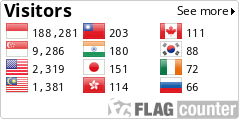IMPLEMENTASI ETIKA BISNIS ISLAM PADA RUMAH MAKAN KIKIL DAN BAKSO BAROKAH “MBAH RIP” DI DAERAH BAURENO BOJONEGORO
Abstract
Business and economic practices in the Islamic context are always closely related to the Islamic faith and Sharia principles. This confirms that a deep understanding of the Islamic perspective on business and economics requires a deep understanding of the Islamic faith and Sharia. This research aims to determine and analyze the application of Islamic business ethics at the Kikiru Restaurant and Bakso Baroka "Mba Lip" located in Gunungsari Village, Bauleno District, Bojonegoro Regency. This research uses a qualitative approach with field research techniques using primary data sources and secondary data. Primary data was collected through interviews, surveys and observations, while secondary data was obtained from various documents and related literature. The data analysis technique used in this research is data reduction. In this way, data reduction provides a clearer picture and makes it easier for researchers to collect data. The research results show that there are five principles of applying Islamic business ethics at the Warung Kikir and Bakso Baroka 'Mbah' and 'Rip' restaurants. The first is the principle of monotheism or unity, where the quality of the products offered takes priority and does not practice other haram goods. Second, guarantee the principle of balance by ensuring that the prices offered reflect the true quality and value of the food being sold. Third, upholding the principle of free will: transparency, fairness, absence of coercion, fair and mutually beneficial agreements in all labor agreements. Fourth, apply the principle of responsibility by ensuring excellent service quality, transparent pricing and responsible waste management. Fifth, apply the principle of benevolence by ensuring adequate and fair support for all customers as well as transparency in the ordering and payment process.










